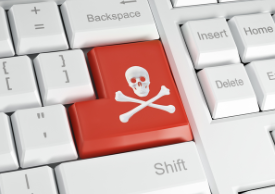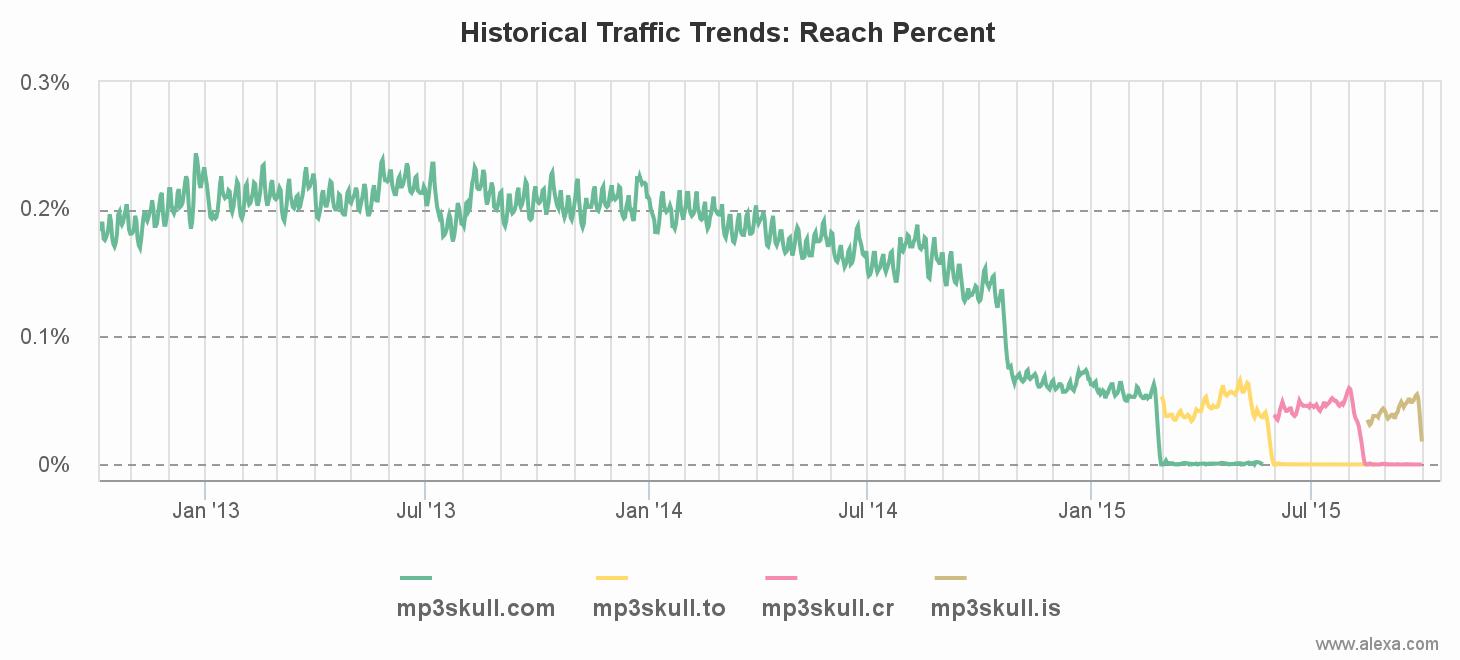RIAA and MPAA Report Notorious Piracy Sites to U.S. Government
mercredi 7 octobre 2015 à 12:25 Responding to a request from the Office of the US Trade Representative (USTR), the RIAA and MPAA have sent in their annual list of rogue websites.
Responding to a request from the Office of the US Trade Representative (USTR), the RIAA and MPAA have sent in their annual list of rogue websites.
TorrentFreak obtained a copy of the submissions in which the entertainment industry groups target a wide variety of websites they say are promoting the illegal distribution of music, movies and TV-shows.
The lists include torrent sites, linking sites, cyberlockers and unauthorized streaming services, which are primarily hosted outside the United States. According to the industry groups these sites are costing U.S. companies millions of dollars in revenue.
The MPAA points out that many sites directly compete with legal services and are “stealing” revenue from the people who created the content.
“Content thieves take advantage of a wide constellation of easy-to-use online technologies, such as direct download and streaming, to create sites and applications with the look and feel of legitimate content distributors,” MPAA’s Joanna McIntosh writes (pdf).
The pirates sites are often able to offer their services in relative anonymity hosted outside of the United States. As targeting them directly is problematic, MPAA says other service providers, such as search engines and hosting companies, should help out.
“All stakeholders in the Internet ecosystem – including hosting providers, advertising networks, payment processors, and search engines – should be actively seeking to reduce support for notoriously infringing sites such as those we have nominated in these comments,” McIntosh notes.
Among the sites listed by the MPAA (attached to this article) are familiar names such as The Pirate Bay, KickassTorrents and Torrentz. YTS.to is called out as well, and the Hollywood group mentions its connection to the release group formerly know as YIFY, as well as the popular Popcorn Time application.
The MPAA further highlights streaming sites including Primewire and Nowvideo, the popular Russian social network VK.com, and cyberlockers such as Putlocker and Uploaded.
Stressing the important of third-party services MPAA notes that domain name registrars can also be seen as possible “notorious markets.” It specifically calls out the Indian Public Domain Registry (PDR) which repeatedly refused to take action against pirate sites.
The responsibility of third party service providers is also highlighted in RIAA’s submission (odt). The group lists a total of 57 pirate websites, which in part overlaps with the MPAA.
The Pirate Bay and other popular torrent sites and cyberlockers are called out, as well as specialized music streaming and download sites such as MP3Skull, Stafaband and Albumkings.
In addition, the RIAA counters the argument of “apologists” who oppose stricter anti-piracy enforcement on the basis it could endanger freedom of expression.
“Many of those who profit from the status quo like to disguise their self-interest in rhetoric about free expression. It is long past time to end this dangerous charade. Defending the piracy of creative works in the name of freedom of expression is tantamount to foxes campaigning for open-range chickens,” RIAA’s Neil Turkewitz writes.
“Online enforcement efforts are complicated when intermediaries do not take adequate steps to ensure their services are not being used to facilitate copyright infringement, a problem compounded by the fact that some website operators and intermediaries operate anonymously and outside the boundaries of the law,” he adds.
One of the groups RIAA indirectly refers to as “apologists” is the Electronic Frontier Foundation (EFF).
The civil rights group actively protests the MPAA and RIAA efforts and in their own submission to the USTR they warn that the obligations of third-party services such as domain name registrars is overstated.
According to the EFF, free speech is at risk when these companies respond to requests and complaints without a judicial order. The USTR already listed the Canadian domain registrar Tucows in its overview of notorious markets last year, a decision to which the EFF objects.
“We find it highly rash for the USTR to be calling for foreign domain name registrars to honor extra-judicial demands for the removal of domains, because it is obvious how such demands could backfire spectacularly against U.S. Internet companies, at the behest of foreign governments and special interests seeking to censor U.S. speech,” the EFF writes (pdf).
Below are the full lists as reported to the USTR by the MPAA and RIAA. These, and the other submissions will form the basis of the U.S. Government’s Special 301 Out-of-Cycle Review of Notorious Markets, which is expected to come out later this year.
—
MPAA’s list of notorious pirate sites (23)
Extratorrent.cc
Kat.cr
Rutracker.org
ThePirateBay.gd (in addition to .la, .mn, and .vg TLDs)
Torrentz.eu
Yts.to
Letitbit.net
Nowvideo.sx and the “Movshare Group” –
Rapidgator.net –
Uploaded.net
Videomega.tv
VK.com
Cuevana.tv
Kinogo.co
Megafilmeshd.net
Movie4k.to
Pelis24.com
Primewire.ag
Putlocker.is
Solarmovie.is
Viooz.ac
Watch32.is
Watchseries.lt
RIAA’s list of notorious pirate sites (57)
Thepiratebay.gd
Kat.cr
Torrentz.eu
Extratorrent.cc
Bitsnoop.com
Isohunt.to
Cpasbien.pw
Torrenthound.com
Torrentdownloads.me
Torrentreactor.com
LimeTorrents.cc
Torrents.net
T411.in
Sumotorrent.sx
Seedpeer.eu
VK.com
MP3Skull
Itemvn.com
Stafaband.info
Viperial.me
Im1music.co
Albumkings.co
Newalbumreleases.net
Warez-bb.org
Israbox.info
Bajui.com
Goear.com
Exvagos.com
Degraca.org
Sobaixar.com
Ex.ua
4shared.com
uploaded.net
Rapidgator.net
Zippyshare.com
Dopefile.com
Chomikuj.pl
Turbobit.net
Hitfile.net
Letitbit.net
1fichier.com
Uploadable.ch
Share-online.biz
Ulozto.cz
Mp3va.com
Soundsbox.com
Iomoio.com
Soundike.com
Payplay.fm
Mp3million.com
Megaboon.com
Melodishop.com
Melodysale.com
Mp3caprice.com
Ivave.com
Mediasack.com
Goldenmp3.ru
Source: TorrentFreak, for the latest info on copyright, file-sharing, torrent sites and ANONYMOUS VPN services.
 In 2013, famous anti-piracy prosecutor Fredrik Ingblad
In 2013, famous anti-piracy prosecutor Fredrik Ingblad  Earlier this year the General Publishers Group (GAU) discovered that several eBooks belonging to its members were being sold illegally on Google Play.
Earlier this year the General Publishers Group (GAU) discovered that several eBooks belonging to its members were being sold illegally on Google Play.  Earlier this year a coalition of record labels including Capitol Records, Sony Music, Warner Bros. Records and Universal Music Group filed a lawsuit against MP3Skull.
Earlier this year a coalition of record labels including Capitol Records, Sony Music, Warner Bros. Records and Universal Music Group filed a lawsuit against MP3Skull. 
 After suffering ten postponements the extradition hearing of Kim Dotcom, Mathias Ortmann, Finn Batato and Bram van der Kolk was never likely to be a smooth, straightforward affair, even when it
After suffering ten postponements the extradition hearing of Kim Dotcom, Mathias Ortmann, Finn Batato and Bram van der Kolk was never likely to be a smooth, straightforward affair, even when it